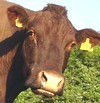MLC warns of tightening red meat supply

Red meat supplies are likely to fall short of demand unless supermarkets cease operating practices that keep prices artificially low, the Meat and Livestock Commission has warned.
MLC chairman Peter Barr told the last-ever MLC board meeting on 26 March that supermarket prices are unsustainable: “It’s good to see upwards movement in farmgate livestock prices. This is much needed, though there is still a way to go to reflect true cost of production in each sector.
“However, the red meat processing industry has been only sporadically successful in passing the farmgate price rises on to their own multiple retail customers.
Pricing
“Destructive price competition and deep-cut meat promotions are not sustainable. The days of selling protein too cheaply are over.
“Processors are being squeezed and there will be unnecessary business failures as a consequence.
“There is a growing shortfall of raw material as the European livestock farming sector contracts as a result of changes to the Common Agricultural Policy and poor profitability. This shortfall will only be exacerbated as world population expands.”
Pressure
The sector was at a crossroads, said Mr Barr, with meat processors as likely as producers to feel the pressure.
“The industry is potentially reaching a point at which two things will start to happen: It will be unable to meet the peaks of demand caused by retail promotions – particularly on manufacturing beef used for mince, and we will see processing businesses go to the wall.
He added: “Ultimately consumers will have to pay more for meat and increased market returns will need to be shared equitably through the supply chain to ensure processors and producers can survive and consumers can continue to buy meat.
On 31 March 2008 the Meat and Livestock Commission will be dissolved after 41 years of operation. From 1 April 2008 a new statutory levy board will take over, the Agriculture and Horticulture Development Board (AHDB).
Its statutory functions encompass meat and livestock (cattle sheep and pigs) in England horticulture milk and potatoes in Great Britain cereals and oilseeds in the UK.
